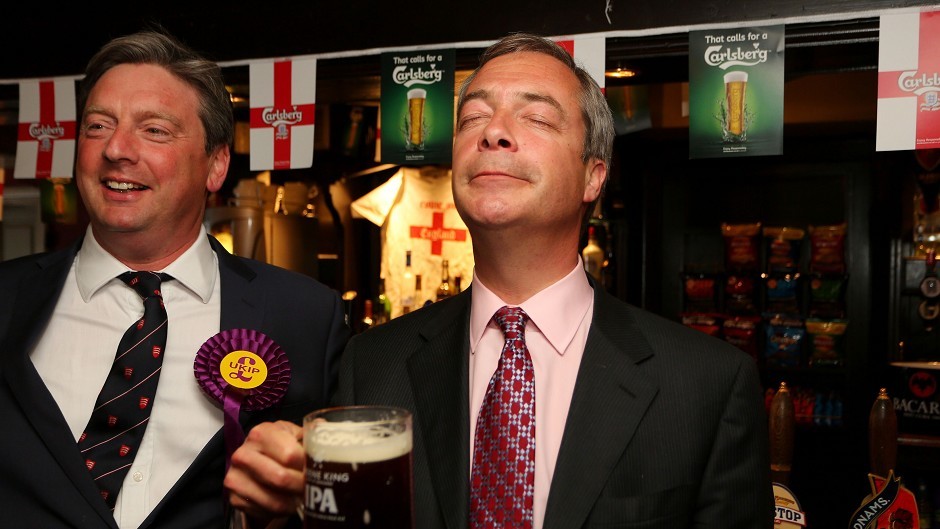The UK Independence Party (Ukip) has secured its first seat north of the border in the European Parliament elections.
The SNP emerged with the largest share of the vote in Scotland, including wins in Aberdeen, Aberdeenshire and Moray.
However, the Nationalists did not do enough across the country to reach a target of securing three of the six Scottish seats.
All but one Scottish council, Western Isles, had declared last night. After the first 31 declarations, the SNP had a 28.9% share of the vote, ahead of Labour with 25.9% and the Conservatives on 17.2%.
The SNP and Labour are both in line to retain two seats, while the Conservatives increased their share of the vote from 2009 to hold onto one.
Ukip previously had no political representation at any level in Scotland. Lead candidate David Coburn said: “It shows Scots are fed up to the back teeth with the usual suspects.
“Working people are fed up with the Labour Party who talk a big game, and with the SNP, who are just Edinburgh solicitors doing the Highland fling and not worrying about anything that really matters to ordinary people.”
South of the border, Nigel Farage’s party were also enjoying a predicted surge in support, while results were also looking good for Labour.
It was a bad night for the Liberal Democrats, however, with the party’s overall share of the vote in Scotland slipping behind the Greens.
In Aberdeen City, the SNP won with 15,412 votes. Labour took 12,420, with the Conservatives on 9,824, UKIP 5,025, Lib Dems on 4,605 and Greens on 3,723.
The SNP also had the biggest vote share in Aberdeenshire, with 19,802, with the Tories closest with 15,710, Lib Dems 8,876, UKIP with 7,420 and Labour with 6,402.
The Nationalists won in Moray by a 2,000 vote margin ahead of the Conservatives with 5,471 and Ukip with 3,064.
First Minister Alex Salmond said: “After seven years in government, it looks like we’re going to win yet another election in Scotland. I don’t think that’s too bad a performance.”
In Orkney, the Lib Dems were out in front with 1,825, with the SNP on 872, Conservatives on 679 and the Greens edging past UKIP with 619 to 618. Labour were on 466.
Turnout in Scotland was up on the last European Parliament elections, at 34% compared with 28.5% in 2009. UK-wide, it was 36%, up from 34%.
In Aberdeen, the figure was 31.8%, Aberdeenshire 32.6% and Moray 31.9%. Edinburgh reported a turnout of more than 40%.
It had been a lengthy wait for candidates, with the count starting at 6pm last night, three days after polling day on Thursday.
In England, the mainstream parties were bracing themselves for another strong performance from Ukip after last week’s council election results in which the anti-EU group took a sizeable portion of the total vote.
Last night, Ukip was dismissed as a “protest party” by Defence Secretary Philip Hammond, however.
The Conservative MP insisted the vote share was skewed by a significant number of “lender voters” who would abandon Ukip and return to the Tory fold for the 2015 general election.
Across all 28 member states in Europe, anti-EU parties from the left and right are expected to gain significant numbers of MEPs in the wake of the eurozone crisis and a severe financial squeeze.
Mr Farage, meanwhile, said he was confident his party will top the poll in the UK, piling further pressure on the established Westminster parties to find ways to win back supporters.
Prime Minister David Cameron has indicated there will be an in-out referendum on the UK’s place within the EU in 2017 amid increasing Euro-scepticism among Tory backbenchers.
